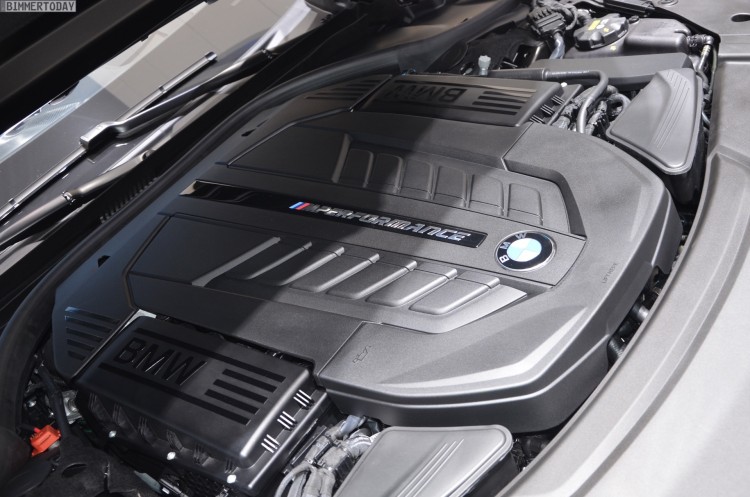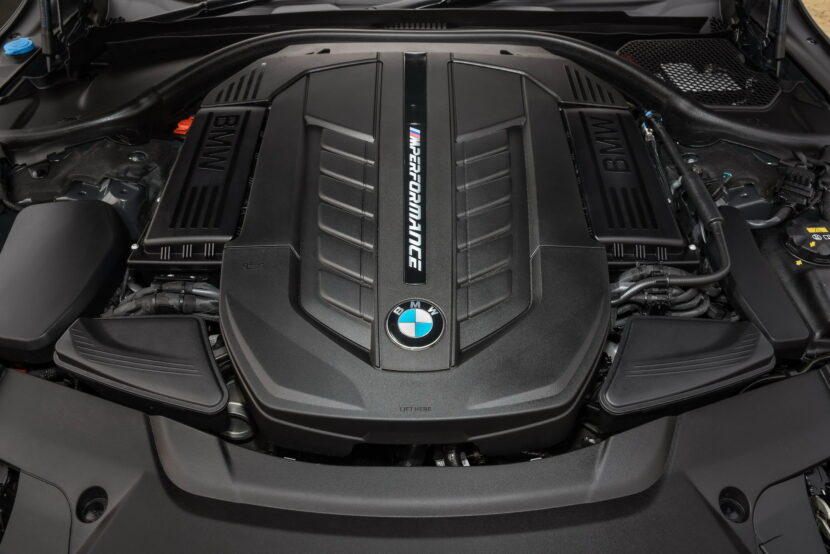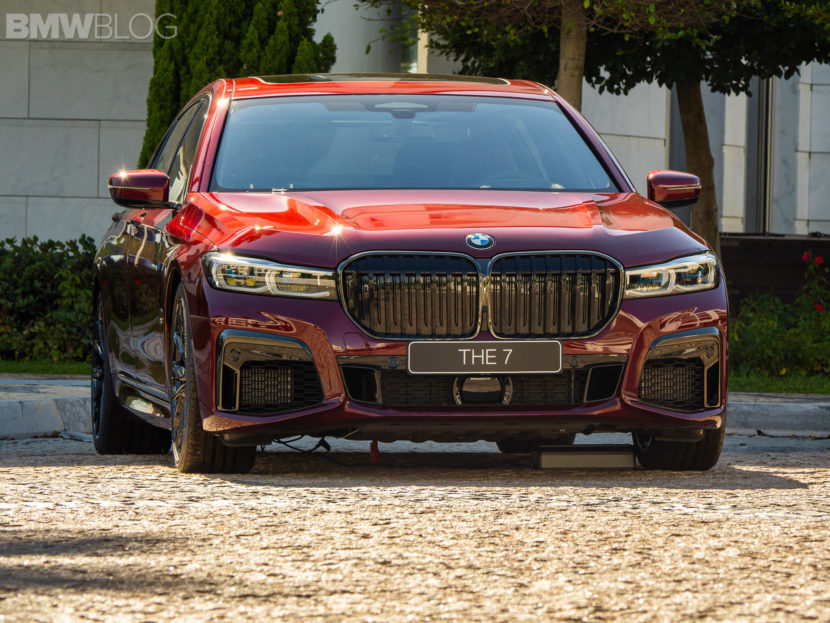The BMW N74 is an engineering marvel that represents the head of BMW’s engine growth. Launched in 2008, the N74 changed the legendary N73 V12 and introduced fashionable developments to BMW’s flagship engine structure. It powered a few of BMW’s most luxurious and high-performance autos, together with the 7 Sequence, Rolls-Royce Ghost, Wraith, and Cullinan, earlier than being phased out in favor of electrification. This text delves into the options, reliability, and tuning potential of the N74 V12 engine.
Options of the BMW N74 V12 Engine
The N74 is a twin-turbocharged V12 engine, with displacements starting from 6.0 to six.75 liters, relying on the variant. The turbochargers are positioned externally on the engine and function with a lift strain of 11.6 psi (0.8 bar).
- Twin-Turbocharging – The N74 employs two turbochargers, one for every financial institution of cylinders, delivering a lift strain of roughly 11.6 psi. This setup ensures a broad torque curve and responsive acceleration.
- Direct Gas Injection and Variable Valve Timing – Outfitted with high-pressure direct injection and BMW’s Double-VANOS variable valve timing, the N74 achieves exact gas supply and optimum combustion effectivity, enhancing each efficiency and gas financial system.
- Aluminum Development – The engine options an aluminum block and heads, decreasing weight and enhancing thermal effectivity, which contributes to raised automobile dealing with and efficiency.
- Smoothness and Refinement – The V12 configuration inherently supplies distinctive smoothness with minimal vibration, providing a refined and opulent driving expertise, a attribute extremely valued in each BMW and Rolls-Royce fashions.
- Efficiency Specs – Relying on the variant, the N74 produces:
- Energy Output -Starting from 536 hp within the early 6.0-liter variations to 624 hp within the 6.6-liter configurations utilized in fashions just like the Rolls-Royce Wraith.
- Torque – Delivering between 553 lb-ft (750 Nm) to 664 lb-ft (900 Nm), guaranteeing strong acceleration throughout varied fashions.
Reliability of the BMW N74
The N74 V12 is broadly considered an exceptionally dependable platform. Its strong engineering and high-quality parts have earned it a status as top-of-the-line V12 engines ever produced. Having been in manufacturing for over a decade, it has confirmed its sturdiness in each BMW and Rolls-Royce autos, the place longevity and reliability are paramount.
Whereas the N74 is a outstanding engine, it isn’t fully with out its quirks. Should you’re contemplating a BMW 7 Sequence geared up with this powerhouse, there are a couple of potential points to bear in mind.
Excessive-Strain Gas Pump (HPFP) Points
One generally reported downside amongst N74 homeowners on varied boards is the failure of the high-pressure gas pump. This crucial part is accountable for delivering gas to the engine on the exact strain wanted for optimum efficiency. Failures are inclined to happen extra continuously in older fashions and sometimes occur with none prior warning, doubtlessly resulting in sudden efficiency points or a no-start situation.
Water Pump Points
The N74 options an electrical water pump reasonably than a standard chain- or belt-driven design. Whereas this contemporary method provides a number of benefits, it additionally introduces some potential reliability considerations. The water pump performs an important position in sustaining the engine’s optimum temperature by circulating coolant to the radiator, making it important for the engine’s correct operation.
Turbocharger Failures and Wastegate Rattle
Whereas repairs like changing a gas pump or injectors can typically be managed at an inexpensive price, addressing critical points with the N74’s twin turbochargers is way tougher and costly. One notable downside that has occurred with the N74 is wastegate failure. The wastegate, which regulates exhaust fuel circulation and controls the turbocharger’s spool pace, can develop points over time.
A standard perpetrator is a worn actuator rod, which may result in a attribute rattling noise from the wastegate. If left unaddressed, this seemingly minor challenge can escalate, doubtlessly inflicting catastrophic turbocharger failure. Immediate consideration is essential to forestall additional harm and make sure the engine’s continued efficiency.
Tuning Potential of the N74
The N74’s strong structure provides important tuning potential for fanatics searching for enhanced efficiency.
Software program Tuning
ECU remapping can yield substantial energy positive aspects, with will increase of as much as 100 hp and 150 lb-ft of torque, relying on the particular tune and engine variant.
{Hardware} Upgrades
- Turbochargers: Upgrading to bigger turbochargers can push the engine’s output past 700 hp, although this requires complete supporting modifications.
- Exhaust System: Excessive-flow exhaust parts can enhance airflow, enhancing each efficiency and the engine’s acoustic presence.
- Cooling Methods: Enhanced intercoolers and radiators are important to handle elevated thermal hundreds ensuing from larger efficiency tuning.
It’s vital to notice that whereas the N74 shares some technological options with different BMW engines, resembling turbocharging and direct injection, it doesn’t make the most of BMW’s Valvetronic variable valve carry system.
Totally different BMW N74 Variants
N74B60
- 2008-2015 BMW 760i/760Li (F01)
N74B66
- 2010–2020 Rolls-Royce Ghost
- 2014–2020 Rolls-Royce Ghost V-Specification
- Eadon Inexperienced Panthean Coupe (a retro-styled British Luxurious Coupe]
- 2014–2022 Rolls-Royce Wraith
- 2015–2022 Rolls-Royce Daybreak
N74B66TU
- 2016-2022 BMW M760Li xDrive (G12)
N74B68
- 2017-present Rolls-Royce Phantom VIII
- 2018-present Rolls-Royce Cullinan
- 2021-present Rolls-Royce Ghost





